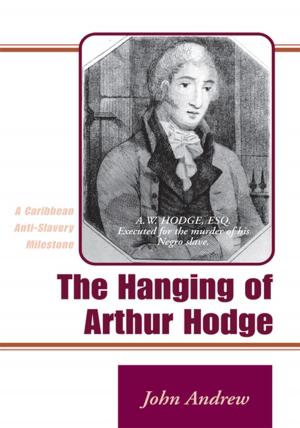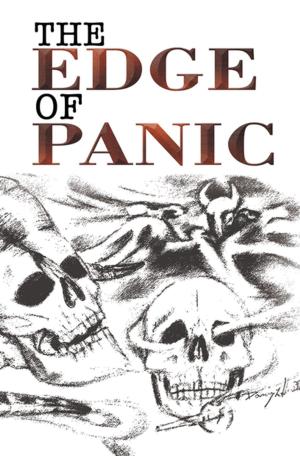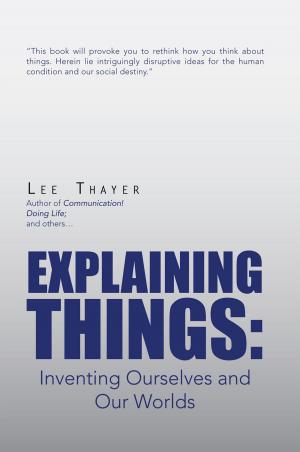| Author: | Ellis Byers | ISBN: | 9781477163924 |
| Publisher: | Xlibris US | Publication: | January 14, 2005 |
| Imprint: | Xlibris US | Language: | English |
| Author: | Ellis Byers |
| ISBN: | 9781477163924 |
| Publisher: | Xlibris US |
| Publication: | January 14, 2005 |
| Imprint: | Xlibris US |
| Language: | English |
Thoreau once surmised that most of us lead lives of quiet desperation. Reading these stories brings Thoreaus words to mind. The characters are found in settings in the Deep South in the days of Huey Long in Louisiana; in present day New York City with its current economic hardships and other difficult goings on; and in several Mississippi locales.. The characters exist in quiet desperation. Isolated within Themselves all face crisis and loss. And yet somehow they struggle to cope with the hope they will prevail.
In the title story a Cajun bartender struggles against fate and the two sons who have stolen his farm. A farmer turned bartender, Joe Lee LeBlanc sues his boys to recover the farm. His story circulates. He has his few minutes of fame as interest in his case grows. People stop ignoring the khakis-clad bartender. They ask about progress in his cause. Of course free beer and tomorrow never arrive. The old bartender never gets his day in court. Chekhovs story, The Lament, is recalled as one reads FBT, set in Opelousas, Louisiana, during the Yambilee Festival.
The shadow world of cockfighting with its unlawfulness and potential for violence is the environment where one youngster is coming of age. The Cockfighters, reminiscent of Sherwood Andersons I Want To Know Why, and Ernest Hemingways My Old Man, also has a Louisiana locale where the law and the Church (ironically in the Parish of St. Landry) turn a blind eye to the blood sport in which fighting cocks usually duel to the death.
An unknown assailant kills the boys father after a highly wagered cockfight. The Lad, freed from the sport, is urged to get an education by his guardian, a former prostitute and the mistress of the dead father.
At the end of the story, the fathers murder remains unsolved. And a sable rooster with a fighting spirit, a bird the family pinned its hopes on, is killed in a cockpit battle it was supposed to win. We are left to ponder what part the little cock had to do with the death of the father after the little bird is found nailed to a post outside the cockfighting arena. The question of the boys true understanding of his fathers profession remains unresolved. The boy is last seen studying hard in school, reading Hemingway and thinking about horseracing as a career.
In The Picaninny, an African American child is forced to leave the South after innocently kissing a white boy. Later she finds fame as a singer in the North. She returns to her roots in Mississippi. She finds change and understanding after talking to a crippled white man from her past. She leaves Mississippi a second time but without baggage.
The protagonist in To Kill A Kingfish races against time to stop his cousin from killing Louisianas former governor (U.S. Senator Huey Long in the story). The tale unfolds as the protagonists grandson attempts to unravel a relatives ties to the assassination plot. In the end the grandson scruples and decides to let the story remain unrecorded.
The WWII pilot hero of Beau Chandlers Wonderful Bedroom returns from the Battle and settles in New York City. He finds the perfect one bedroom that eventually becomes the prize in a battle of another sort. Chandler, a gentile, and Kahan, a Jew who manages the building, are both obsessed with the apartment but for different reasons. Both men are oblivious to some of the reasons the war was fought. There is no brotherly love in the story. In the end the old pilot, an alcoholic, dies in a fall down a stairwell. Was he pushed over the railing by Kahan? Does the old man simply give up the fight? In the end the thought lingers: how easily man is motivated to kill.
Thoreau once surmised that most of us lead lives of quiet desperation. Reading these stories brings Thoreaus words to mind. The characters are found in settings in the Deep South in the days of Huey Long in Louisiana; in present day New York City with its current economic hardships and other difficult goings on; and in several Mississippi locales.. The characters exist in quiet desperation. Isolated within Themselves all face crisis and loss. And yet somehow they struggle to cope with the hope they will prevail.
In the title story a Cajun bartender struggles against fate and the two sons who have stolen his farm. A farmer turned bartender, Joe Lee LeBlanc sues his boys to recover the farm. His story circulates. He has his few minutes of fame as interest in his case grows. People stop ignoring the khakis-clad bartender. They ask about progress in his cause. Of course free beer and tomorrow never arrive. The old bartender never gets his day in court. Chekhovs story, The Lament, is recalled as one reads FBT, set in Opelousas, Louisiana, during the Yambilee Festival.
The shadow world of cockfighting with its unlawfulness and potential for violence is the environment where one youngster is coming of age. The Cockfighters, reminiscent of Sherwood Andersons I Want To Know Why, and Ernest Hemingways My Old Man, also has a Louisiana locale where the law and the Church (ironically in the Parish of St. Landry) turn a blind eye to the blood sport in which fighting cocks usually duel to the death.
An unknown assailant kills the boys father after a highly wagered cockfight. The Lad, freed from the sport, is urged to get an education by his guardian, a former prostitute and the mistress of the dead father.
At the end of the story, the fathers murder remains unsolved. And a sable rooster with a fighting spirit, a bird the family pinned its hopes on, is killed in a cockpit battle it was supposed to win. We are left to ponder what part the little cock had to do with the death of the father after the little bird is found nailed to a post outside the cockfighting arena. The question of the boys true understanding of his fathers profession remains unresolved. The boy is last seen studying hard in school, reading Hemingway and thinking about horseracing as a career.
In The Picaninny, an African American child is forced to leave the South after innocently kissing a white boy. Later she finds fame as a singer in the North. She returns to her roots in Mississippi. She finds change and understanding after talking to a crippled white man from her past. She leaves Mississippi a second time but without baggage.
The protagonist in To Kill A Kingfish races against time to stop his cousin from killing Louisianas former governor (U.S. Senator Huey Long in the story). The tale unfolds as the protagonists grandson attempts to unravel a relatives ties to the assassination plot. In the end the grandson scruples and decides to let the story remain unrecorded.
The WWII pilot hero of Beau Chandlers Wonderful Bedroom returns from the Battle and settles in New York City. He finds the perfect one bedroom that eventually becomes the prize in a battle of another sort. Chandler, a gentile, and Kahan, a Jew who manages the building, are both obsessed with the apartment but for different reasons. Both men are oblivious to some of the reasons the war was fought. There is no brotherly love in the story. In the end the old pilot, an alcoholic, dies in a fall down a stairwell. Was he pushed over the railing by Kahan? Does the old man simply give up the fight? In the end the thought lingers: how easily man is motivated to kill.















